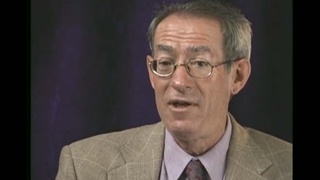Interviews
Speaking out in camp
We got together with him and uh I think maybe four or five of us and we started talking with him and uh, he gave us a pretty good course on the Constitution and all the uh Roosevelt just looked at us like Oriental monkeys and uh that uh all our rights as citizens were stepped on within [inaudible]. So uh, well some of us felt the same way he did and as we organized he was uh deemed as a chairman of the Fair Play Committee. And uh, (clears throat) we held open public meetings in various camps uh various blocks of the camps. We were of course we were explaining what the government did was wrong and it was against the law and that uh we had no rights as citizens and did all this explaining, the information you know to the people and we had standing room only crowds at that time because the draft was a very important uh thing that was uh introduced into the camps.
Date: May 9, 2006
Location: California, US
Interviewer: Lisa Itagaki
Contributed by: Watase Media Arts Center, Japanese American National Museum








